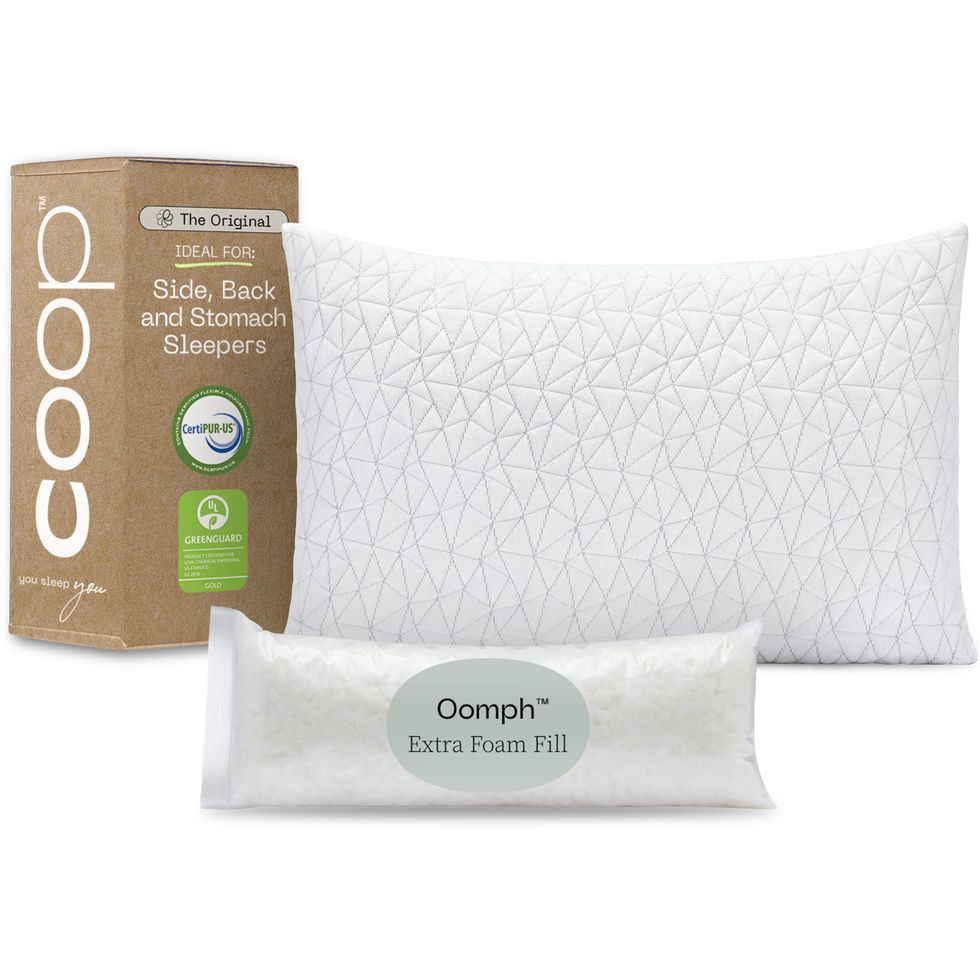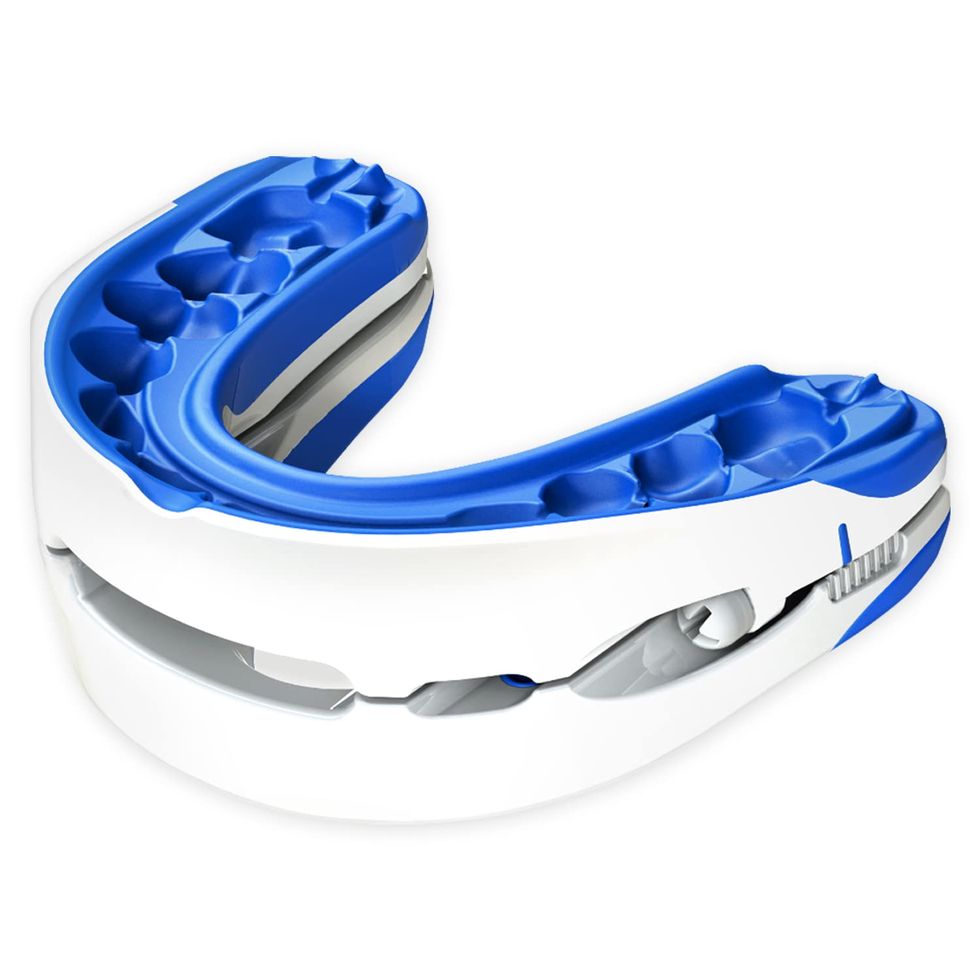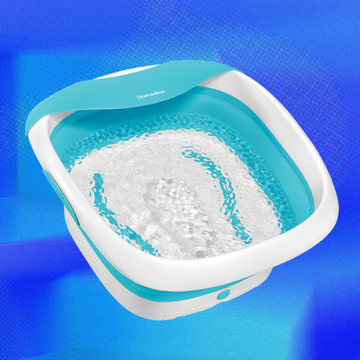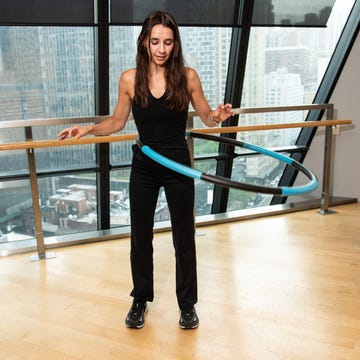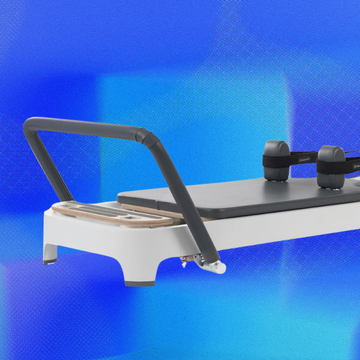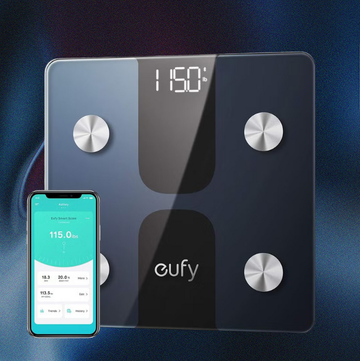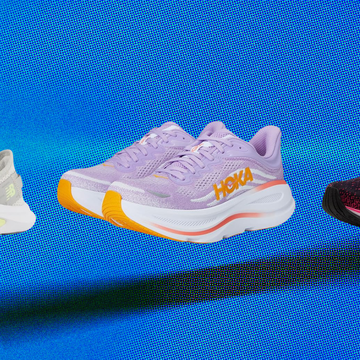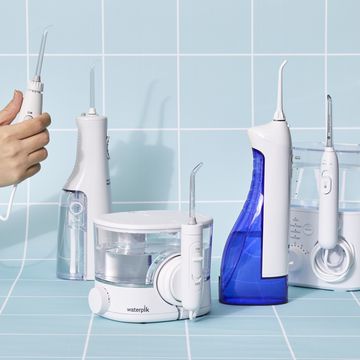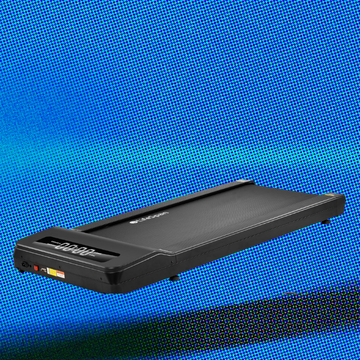1
Best Pillow
Coop Home Goods Original Loft Pillow
Pros
 Adjustable
Adjustable  Machine washable
Machine washable Extra fill included
Extra fill included
Cons
 Expensive
Expensive Outer cover pills over time
Outer cover pills over time
Designed for all sleeping positions, the Loft pillow features shredded memory foam and polyester fill that are completely adjustable so you can work the height and angle that's best for you. The Good Housekeeping Institute also rated the Loft pillow the best pillow overall in their tests, as well as the best value pillow for side sleepers.
2
Best Nasal Dilator
Rhinomed Rhinomed Mute Nasal Dilator
Pros
 Made from medical-grade material
Made from medical-grade material Affordable
Affordable HSA & FSA eligible
HSA & FSA eligible
Cons
 May be uncomfortable for some
May be uncomfortable for some
Internal nasal dilators, like this one, are placed in the nostrils to sort of prop open the nasal passages for better airflow, less snoring and a more peaceful sleep, says Dr. Breus. “Internal nasal dilators may feel super weird for the first 30 seconds or so, but then you get used to it and don’t notice they’re there — so they’re definitely comfortable enough for someone to sleep with,” Dr. Breus adds. Mute by Rhinomed is made from medical-grade polymers, can be reused up to 10 times and is FDA registered and is HSA/FSA eligible.
| Type | Dilator |
| Reusable? | Yes, but only 10 times |
Advertisement - Continue Reading Below
3
Best Nasal Strips
Breathe Right Nasal Strips
Pros
 Strong adhesive
Strong adhesive Made from medical-grade materials
Made from medical-grade materials Affordable and comfy
Affordable and comfy
Cons
 May shift for some people, especially with oily skin
May shift for some people, especially with oily skin
Nasal strips that you apply to the outside of your nose, like a band-aid, may help stop mild snoring for some people, says Dr. Dasgupta. The stretchy adhesive is meant to gently encourage nasal passageways to open for easier breathing and better quality sleeping. Nasal strips may not work for everyone, as they can shift in the night if they’re not sticky enough to withstand oils on the face — but that’s why we love this Amazon bestseller, which is made from medical-grade adhesive for a strong grip but smooth removal.
4
Best Mandibular Advancement Device
Vital Sleep Anti-Snoring Mouthpiece
Pros
 Customizable
Customizable  Made from medical-grade materials
Made from medical-grade materials Adjustable
Adjustable
Cons
 May cause jaw or tooth pain as the mouth shifts
May cause jaw or tooth pain as the mouth shifts Some people may find them uncomfortable
Some people may find them uncomfortable Expensive
Expensive
These bedtime mouthpieces are designed to slowly move the mandible (a.k.a. jawbone) just a smidge forward so the airway opens up, and the tongue doesn’t flop back, explains Dr. Breus. Not all mouthpieces are custom fit, but finding one that is, is a smart move because it allows for a better and more comfortable fit. This FDA-cleared device by USA-made VitalSleep is a boil and bite mouthpiece made from hypoallergenic medical-grade materials, so you’re able to mold it to your teeth and mouth; the bottom piece is also adjustable, so you have more control over how many millimeters you require to stop snoring. If you experience jaw or tooth pain, talk to your doctor, who may be able to suggest a different custom-made device.
| Device | Mouthpiece |
| Reusable? | Yes |
Advertisement - Continue Reading Below
5
Best Tongue Retaining Device
Good Morning Snore Solution Mouthpiece
Pros
 Developed by a dentist and sleep researcher
Developed by a dentist and sleep researcher FDA-cleared
FDA-cleared
Cons
 It may look or feel awkward
It may look or feel awkward May be uncomfortable for some, especially stomach sleepers
May be uncomfortable for some, especially stomach sleepers Expensive
Expensive
“A tongue retention device basically uses suction to pull the tongue forward so your airway can remain open,” says Dr. Breus. “Unfortunately, they’re not always the most comfortable.” Still, they’re an option that may work for some people, and this particular device was actually developed by Sleep Researcher Leslie Dort, D.D.S and is FDA-cleared for over-the-counter use. If you do test it out, give yourself three to four weeks to adjust before deciding whether or not it works to stop your snoring.
| Device | Mouthpiece |
| Reusable | Yes |
6
Best Sleep Tracker
Ōura Ring Gen3
Pros
 Minimalist design
Minimalist design Comfortable to wear overnight
Comfortable to wear overnight Accurate insights
Accurate insights
Cons
 Expensive
Expensive
A sleep-tracking device can help you learn more about what happens while you’re sleeping so that you can better optimize bedtime. For instance, you can connect this finger-worn tracker to its corresponding app and see if you experience a drop in oxygen levels throughout the night—one potential sign that you snore. “A sleep tracker and/or app can be helpful, but you’ll still want to run the insights by your doctor to rule out sleep apnea,” says Dr. Dasgupta. Our testers had much to love about the Oura Ring: they say it's comfortable, pretty, waterproof and has good battery life. And importantly, it delivers accurate insights that they were able to use to improve their sleep.
| Device | Sleep tracker |
| Reusable? | Yes |
Advertisement - Continue Reading Below
What to look for in an anti-snoring device
✔️ Severity: The first step is to determine the severity of your snoring and get evaluated for obstructive sleep apnea if necessary. Then, choose an anti-snoring device that addresses what your snoring stems from.
✔️ Type: As you see above, there are many different types of devices to pick from. You should speak with your doctor to find which would benefit you the most, but popular choices include:
- Sleep tracking devices
- Tongue retention device
- Mandibular advancement device
- Nasal strips
- Nasal dilator
- Pillows
✔️ Reusability: Some devices are single-use only, which may be a concern for you in terms of money spent and the environment.
Symptoms of snoring
If you sleep alone and aren’t sure if you snore or if your snoring is cause for concern, many people who snore also experience the following symptoms, so consider if that seems like you:
- Tossing and turning during sleep
- Waking up with a dry or sore throat (due to mouth-breathing)
- Feeling tired and fatigued during the day
- A headache upon waking
- Feeling moody or irritable
- Difficulty focusing
Advertisement - Continue Reading Below
Do anti-snoring devices really work?
While there’s no guarantee that a particular anti-snoring device will quiet you at night, many people are able to find something that provides some sort of relief or improvement — even if it takes a little trial and error. One thing that can increase your chances of finding a fix is to talk to your primary care physician, a sleep specialist or an ear, nose and throat (ENT) doctor to better understand what’s causing your snoring, and in turn, what may be most helpful for your particular situation.
What is the best device to prevent snoring?
No anti-snoring device is necessarily better than another. It all comes down to the reason that you snore, as well as what’s most comfortable and seems to really help. For instance, mild snorers may find success with a simple nasal strip, while a more severe snorer could require a bit more assistance, say in the form of a mouthpiece. And of course, if you’re diagnosed with OSA, your doctor can suggest and prescribe an appropriate snoring therapy. Besides CPAP machines, there’s a newly FDA authorized device called eXciteOSA that you may want to talk to your doctor about. “The FDA approved it for snoring and mild sleep apnea, and it basically delivers electrical stimulation to the muscles of your tongue and upper airway to strengthen them,” explains Dr. Dasgupta; it’s not covered by insurance but is HSA and FSA compatible.
Advertisement - Continue Reading Below
What are the disadvantages of anti-snoring devices?
The right anti-snoring devices shouldn’t come with many disadvantages — though some may be more comfortable than others or just not work for you. One exception is a rising trend called mouth taping, which is where you tape your mouth shut during bedtime so that you’re forced to breathe through your nose; but it could be harmful if you have undiagnosed OSA. “I’m not a big fan of this unless you’ve been screened for sleep apnea,” says Dr. Breus. “If you’ve been screened and don’t have OSA, mouth taping is fine, but most people don’t use the right kind of tape or place it in the wrong direction which can tear the skin on your lips.”
Why trust Good Housekeeping?
Alyssa is a senior editor for the Hearst Health Newsroom, where she has written research-backed health content for Prevention, Good Housekeeping and Woman's Day since 2017. She has more than 13 years of reporting and editing experience, regularly edits and reports on everything sleep (from the latest studies to tips for better sleep) for both print and digital, and she has relied on the expertise of some of the sleep doctors quoted for 10+ years. She talked to sleep specialists to find out what happens when you snore and what causes it. We learned about what types of anti-snoring devices exist, and how each option works (and any risks associated with them), then found products that fit the bill and also had good reviews.

Alyssa is a senior editor for the Hearst Health Newsroom, where she has written research-backed health content for Prevention, Good Housekeeping and Woman's Day since 2017. She has more than 13 years of reporting and editing experience and previously worked as research chief at Reader's Digest, where she was responsible for the website's health vertical as well as editing health content for the print magazine. She has also written for Chowhound, Healthination.com, Huffington Post and more.
Advertisement - Continue Reading Below
Advertisement - Continue Reading Below
Advertisement - Continue Reading Below



